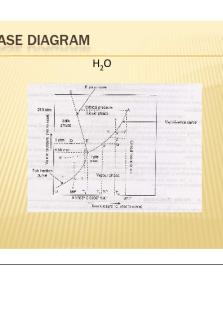Summary - Pinnel\'s rule PDF

| Title | Summary - Pinnel\'s rule |
|---|---|
| Course | Contracts 1 |
| Institution | Victoria University |
| Pages | 1 |
| File Size | 79.6 KB |
| File Type | |
| Total Downloads | 12 |
| Total Views | 117 |
Summary
Pinnel's Rule...
Description
PINNEL’S RULE This rule states that “payment of a lesser sum will not extinguish a debt for a greater amount”. Since, 1608 the rule has impacted on the doctrine of consideration, and exposed the one area where is does not function fairly. The rule enables a creditor to make a promise, and then change his mind. Example: Foakes v Beer Exceptions to Pinnel’s Rule 1. 2. 3. 4. 5.
Prepayment of debt Payment by transferring a chattel Fraud on a “third party” Composition with creditors or settlement of a valid legal claim, and finally Promissory Estoppel
Prepayment of debt -
Payment (of a lesser sum) on the due date is a problem BUT If the debtor pays a lesser amount before repayment is legally required, such prepayment benefits the creditor and disadvantages the debtor. This benefit/disadvantage is good consideration for the creditors promise
Transferring a Chattel -
If, instead of paying cash, I give my creditor some object of value and they agree to accept it in full settlement, they cannot later change their mind and sue. This is because the court will not ascribe a value to the object.
Fraud on a “third party” -
If a person “outside the contract” ie a third party pays part of the debt and the creditor agrees to accept it, the creditor cannot later sue the debtor for the balance. If they could it would amount to a fraud on the third party :Hirachand Punamchand v Temple
Composition with Creditors -
If a debtor convenes a meeting of creditors and they approve a composition under Part X of the Bankruptcy Act, no creditor can later be sued for the unpaid balance of the debt. This applies even if the relevant creditor voted against the scheme. All creditors are bound if it is a valid composition.
Settlement of a legal claim -
If a plaintiff settles a genuine legal claim for less than its “face value” he cannot later sue for the balance. Settlement is encouraged by the courts There are many reasons why a claimant may settle for less than he is owed Once settled, the claim cannot be revived
Estoppel -
If a person is “estopped” from doing something, he is prevented from doing it. Estoppel is a legal doctrine that prevents a person saying one thing and meaning another is a business dealing If another person acts on your statement, you are “estopped” from denying its truth.
Limitation on estoppel -
The limited aspect of estoppel was that court applied it only to statements of a factual nature and refused to extend it to promises of future intention. “He is my agent” is a statement of fact. “I will not sue you for the interest” is a promise of future intention
Promissory Estoppel This approach (shield) was changed in the 1947 High Trees House Case...
Similar Free PDFs

Pinnels-case - pinnels case
- 2 Pages

Summary - Pinnel\'s rule
- 1 Pages

Summary of nagle\'s rule
- 7 Pages

Calc diff Rule prod Rule
- 4 Pages

Literal rule and mischief rule
- 9 Pages

Phase Rule
- 21 Pages

RULE OF LAW - Rule of law essay
- 4 Pages

Bias rule
- 5 Pages

Postal rule
- 6 Pages

Rule of Law - Rule of Law
- 5 Pages

Credibility Rule
- 19 Pages

Violations of octet rule
- 3 Pages

Criminal Law Rule Statements
- 17 Pages
Popular Institutions
- Tinajero National High School - Annex
- Politeknik Caltex Riau
- Yokohama City University
- SGT University
- University of Al-Qadisiyah
- Divine Word College of Vigan
- Techniek College Rotterdam
- Universidade de Santiago
- Universiti Teknologi MARA Cawangan Johor Kampus Pasir Gudang
- Poltekkes Kemenkes Yogyakarta
- Baguio City National High School
- Colegio san marcos
- preparatoria uno
- Centro de Bachillerato Tecnológico Industrial y de Servicios No. 107
- Dalian Maritime University
- Quang Trung Secondary School
- Colegio Tecnológico en Informática
- Corporación Regional de Educación Superior
- Grupo CEDVA
- Dar Al Uloom University
- Centro de Estudios Preuniversitarios de la Universidad Nacional de Ingeniería
- 上智大学
- Aakash International School, Nuna Majara
- San Felipe Neri Catholic School
- Kang Chiao International School - New Taipei City
- Misamis Occidental National High School
- Institución Educativa Escuela Normal Juan Ladrilleros
- Kolehiyo ng Pantukan
- Batanes State College
- Instituto Continental
- Sekolah Menengah Kejuruan Kesehatan Kaltara (Tarakan)
- Colegio de La Inmaculada Concepcion - Cebu


